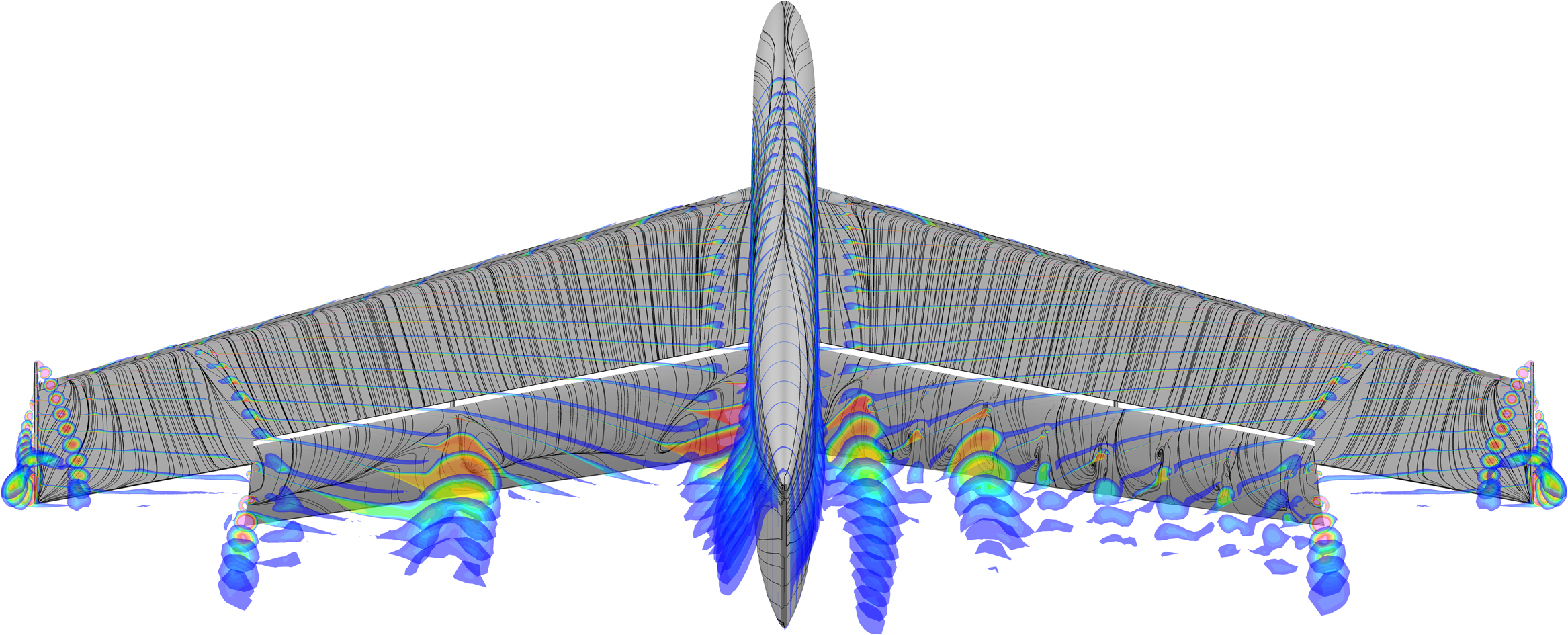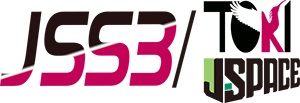Development of vortex generator layout design guidelines for improving aircraft performance
JAXA Supercomputer System Annual Report February 2021-January 2022
Report Number: R21EDA201A01
Subject Category: Aeronautical Technology
- Responsible Representative: Tatsuya Ishii, Director, Aviation Environmental Sustainability Innovation Hub, Aviation Technology Directorate
- Contact Information: Yasushi Ito, Aviation Environmental Sustainability Innovation Hub, Aeronautical Technology Directorate(ito.yasushi@jaxa.jp)
- Members: Yasushi Ito, Kazuyuki Nakakita, Takahiro Yamamoto, Hiroya Toriida, Kentaro Tanaka, Tohru Hirai
Abstract
The installation of vortex generators (VGs) in an aircraft is mainly used as a solution to problems that require performance improvement during the flight test phase, and its placement is often determined by trial and error in flight tests. The objective of this research is to improve the current VG layout and design technology, which is only a quick solution to problems that occur in the flight test phase, so that it can be incorporated into aerodynamic design that actively utilizes VGs from the conceptual design phase.
Reference URL
Please refer to http://www.aero.jaxa.jp/eng/research/basic/application/ .
Reasons and benefits of using JAXA Supercomputer System
Computational simulations using the JSS reveal detailed physical phenomena of VGs, which is difficult only with wind tunnel tests, and enable to improve the design of the devices.
Achievements of the Year
To investigate Reynolds-averaged Navier–Stokes technologies required to predict the effect of VGs installed on a trailing-edge flap of a high-lift wing for the suppression of boundary layer separation, a two-dimensional infinite wing was chosen because computational cost was able to be minimized with high-resolution meshes. A 30P35N airfoil was used to obtain a large flow separation on the flap so that the effect of VGs was easily identified. Mesh generation guidelines have been obtained through this research to predict the effect of VGs, and have been applied to a three-dimensional model, the JAXA high-lift research wind tunnel model OTOMO2, to evaluate the effectiveness of the mesh generation guidelines (Figure 1).

Fig.1: Differences of surface streamlines and entropy distributoin on cross-sections between configurations without VGs (left) and with VGs on the flap (right)
Publications
– Peer-reviewed papers
Ichikawa, Y., Koike, S., Ito, Y., Murayama, M., Nakakita, K., Yamamoto, K., and Kusunose, K., “Size effects of vane-type rectangular vortex generators installed on high-lift swept-back wing flap on lift force and flow fields,” Experiments in Fluids, Vol. 62, No. 8, July 2021, pp. 160, DOI: 10.1007/s00348-021-03198-4.
Usage of JSS
Computational Information
- Process Parallelization Methods: MPI
- Thread Parallelization Methods: Automatic Parallelization
- Number of Processes: 324
- Elapsed Time per Case: 120 Hour(s)
JSS3 Resources Used
Fraction of Usage in Total Resources*1(%): 1.25
Details
Please refer to System Configuration of JSS3 for the system configuration and major specifications of JSS3.
| System Name | CPU Resources Used(Core x Hours) | Fraction of Usage*2(%) |
|---|---|---|
| TOKI-SORA | 29438589.43 | 1.43 |
| TOKI-ST | 22654.73 | 0.03 |
| TOKI-GP | 0.00 | 0.00 |
| TOKI-XM | 2241.28 | 1.61 |
| TOKI-LM | 77.69 | 0.01 |
| TOKI-TST | 0.00 | 0.00 |
| TOKI-TGP | 0.00 | 0.00 |
| TOKI-TLM | 0.00 | 0.00 |
| File System Name | Storage Assigned(GiB) | Fraction of Usage*2(%) |
|---|---|---|
| /home | 75.59 | 0.08 |
| /data and /data2 | 3997.16 | 0.04 |
| /ssd | 517.82 | 0.13 |
| Archiver Name | Storage Used(TiB) | Fraction of Usage*2(%) |
|---|---|---|
| J-SPACE | 55.78 | 0.38 |
*1: Fraction of Usage in Total Resources: Weighted average of three resource types (Computing, File System, and Archiver).
*2: Fraction of Usage:Percentage of usage relative to each resource used in one year.
ISV Software Licenses Used
| ISV Software Licenses Used(Hours) | Fraction of Usage*2(%) | |
|---|---|---|
| ISV Software Licenses(Total) | 530.73 | 0.37 |
*2: Fraction of Usage:Percentage of usage relative to each resource used in one year.
JAXA Supercomputer System Annual Report February 2021-January 2022


